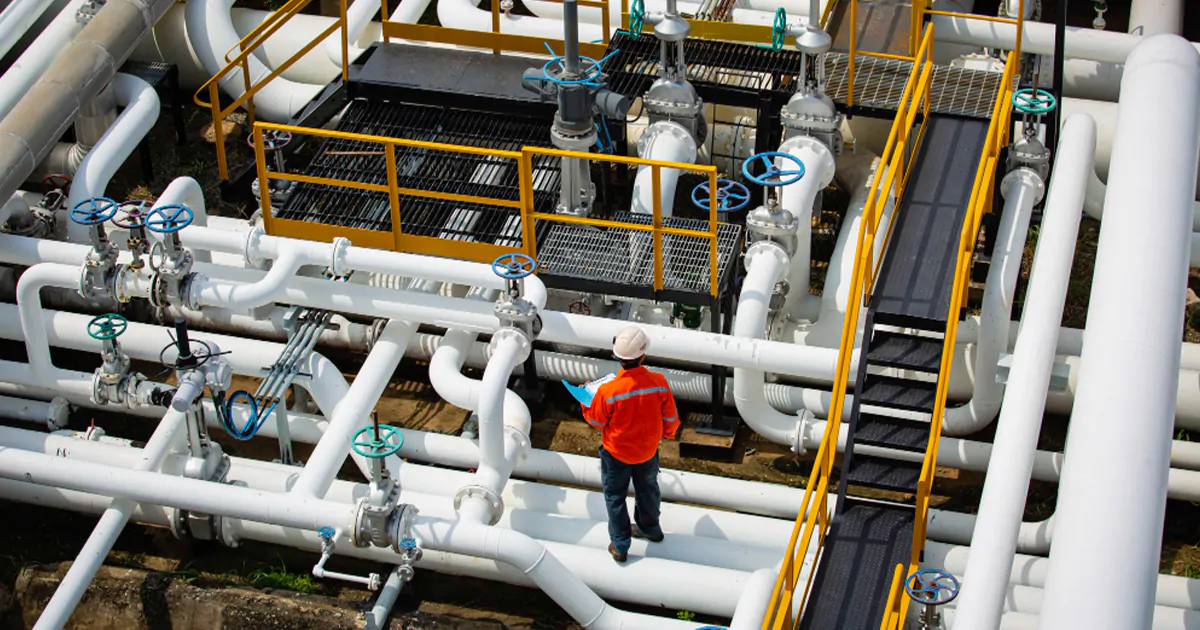What is MEP Engineering?
MEP engineering encompasses the intricate planning, design, and management of Mechanical, Electrical, and Plumbing systems within buildings. These systems are the essential infrastructure that ensures the comfort, functionality, and efficiency of any structure. Mechanical systems regulate temperature and airflow, electrical systems provide power and lighting, while plumbing systems supply water and dispose of waste. MEP engineers work meticulously to integrate these systems seamlessly into the building’s architecture, considering factors like energy efficiency, sustainability, and compliance with building codes and regulations.
The Role of MEP Engineers
Roles like MEP engineering consultants play a pivotal role in the construction process, from conceptualization to completion. They collaborate closely with architects, structural engineers, and other stakeholders to develop holistic building design and drawings that meet the client’s requirements and objectives. By leveraging their expertise in mechanical, electrical, and plumbing systems, MEP engineers ensure that buildings are not only functional but also safe, reliable, and environmentally sustainable. Their responsibilities include system design, equipment selection, cost estimation, project management, and quality assurance.
Services Offered by MEP Engineering Firms
MEP engineering firms offer a comprehensive range of services to address the diverse needs of clients across various industries. These services encompass:
- Mechanical Engineering: Designing HVAC systems, including heating, ventilation, and air conditioning, to maintain optimal indoor comfort and air quality.
- Electrical Engineering: Planning and implementing electrical systems for power distribution, lighting, communication, and safety, ensuring reliable and efficient electrical infrastructure.
- Plumbing Engineering: Developing water supply, drainage, and sewage systems, including fixtures, pipes, and pumps, to deliver clean water and manage wastewater effectively.
The Benefits of Using MEP Services
Partnering with MEP Engineering Company offers numerous benefits for building owners, developers, and occupants alike. These benefits include:
- Improved Energy Efficiency: MEP engineers employ innovative technologies and design strategies to minimise energy consumption and reduce operational costs over the building’s lifespan.
- Enhanced Safety and Compliance: By adhering to building codes and regulations, MEP engineers ensure that building systems meet safety standards and regulatory requirements, mitigating risks and liabilities.
- Cost Savings: Through efficient design, optimization of resources, and lifecycle analysis, MEP engineers help minimise construction costs and long-term operational expenses.
- Optimal Performance: MEP engineers optimise building systems for performance, reliability, and resilience, ensuring seamless operation and minimal downtime.
- Environmental Sustainability: By integrating sustainable design principles, renewable energy sources, and green building practices, MEP engineers contribute to reducing the environmental impact of buildings and promoting sustainability.
A Day in the Life of an MEP Engineer

The daily routine of an MEP engineer is dynamic and multifaceted, encompassing a wide range of tasks and responsibilities. A typical day may involve:
- Collaborating with architects and other engineers to develop design concepts and project requirements.
- Conducting site visits to assess existing conditions, coordinate with contractors, and inspect MEP installations.
- Utilising computer-aided design (CAD) software to create detailed drawings, schematics, and specifications for MEP systems.
- Performing calculations, simulations, and analyses to optimise system performance, efficiency, and cost-effectiveness.
- Attending meetings with clients, contractors, and project teams to discuss progress, address challenges, and ensure project alignment.
- Reviewing and approving shop drawings, submittals, and change orders to maintain project quality and compliance.
Throughout the project lifecycle, MEP engineers remain actively involved in all aspects of design, construction, and commissioning, leveraging their technical expertise and problem-solving skills to deliver successful outcomes.
How to Become an MEP Engineer
Becoming an MEP engineer requires a combination of education, training, certification, and practical experience. The typical path to becoming an MEP engineer includes:
- Obtaining a bachelor’s degree in mechanical engineering, electrical engineering, or a related field from an accredited institution.
- Gaining hands-on experience through internships, co-op programs, or entry-level positions in the engineering industry.
- Pursuing professional licensure as a Professional Engineer (PE) or relevant certifications from recognized organisations such as the American Society of Heating, Refrigerating and Air-Conditioning Engineers (ASHRAE) or the National Fire Protection Association (NFPA).
- Continuing education and professional development to stay current with industry trends, technologies, and regulations.
By continuously honing their skills and knowledge, aspiring MEP engineers can position themselves for rewarding careers in a dynamic and evolving field.
Choosing the Right MEP Engineering Partner

Selecting the right MEP engineering firm is crucial for the success of any construction project. When evaluating potential partners, consider the following factors:
- Expertise and Experience: Look for firms with a proven track record of delivering high-quality MEP drawings and solutions across a range of project types and industries.
- Technical Competence: Assess the firm’s technical capabilities, including proficiency in relevant software, tools, and methodologies for MEP design and analysis.
- Collaboration and Communication: Choose a partner that values collaboration, open communication, and teamwork, fostering a positive and productive working relationship.
- Sustainability and Innovation: Priorities firms that demonstrate a commitment to sustainability, green building practices, and innovation in MEP design and technology.
- Reputation and References: Seek recommendations, reviews, and references from previous clients, contractors, and industry professionals to gauge the firm’s reputation and reliability.
By selecting an MEP engineering partner that aligns with your project goals, values, and expectations, you can ensure a smooth and successful collaboration from inception to completion.
Conclusion
MEP engineering stands as the cornerstone of modern building design, seamlessly integrating mechanical, electrical, and plumbing systems to foster safe, comfortable, and efficient environments. Monarch Innovation showcases the crucial role MEP engineers play in construction, designing sustainable buildings, optimizing energy performance, and ensuring regulatory compliance. Talk to our MEP Engineering Expert Today.
FAQs
Q: What does MEP stand for?
A: MEP stands for Mechanical, Electrical, and Plumbing engineering. It encompasses the design, installation, and maintenance of these systems in buildings.
Q: Why is MEP engineering important in construction?
A: MEP engineering ensures that buildings have functional heating, cooling, lighting, water supply, and drainage systems, enhancing occupant comfort and safety.
Q: What services do MEP firms typically provide?
A: MEP firms offer a range of services including system design, energy efficiency analysis, sustainability consulting, commissioning, and building automation solutions.
Q: What challenges do MEP engineers face in their work?
A: Challenges may include integrating complex systems, optimizing energy efficiency, managing project budgets and timelines, and addressing evolving technology and regulatory requirements.
Q: How can I find a reputable MEP engineering firm for my project?
A: Research online reviews, ask for referrals from colleagues or industry associations, and evaluate firms based on their experience, expertise, project portfolio, and commitment to sustainability.





